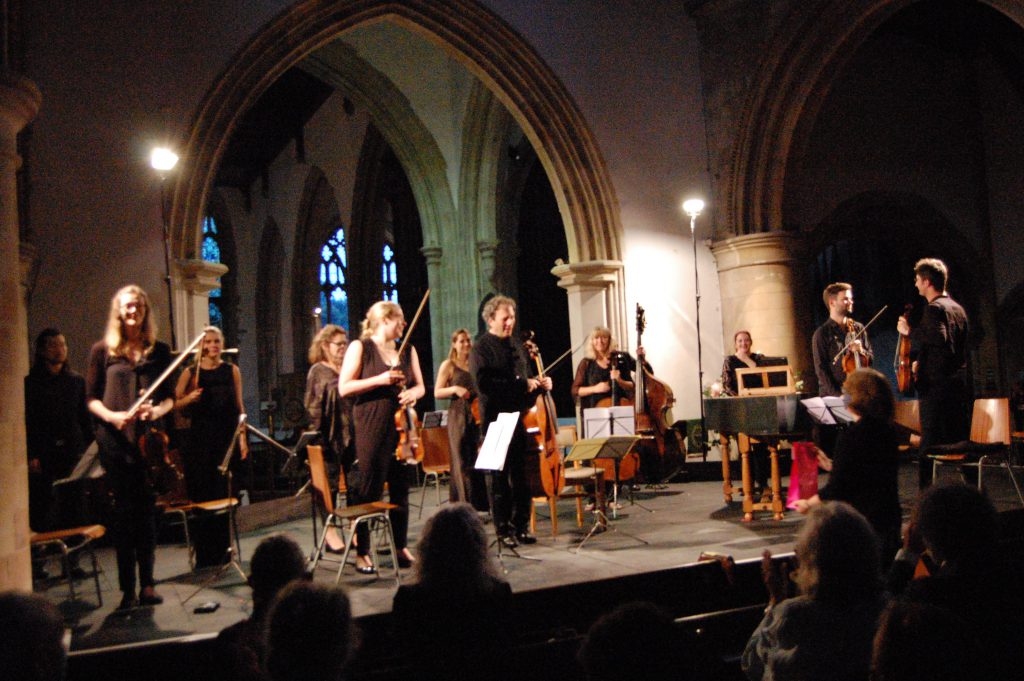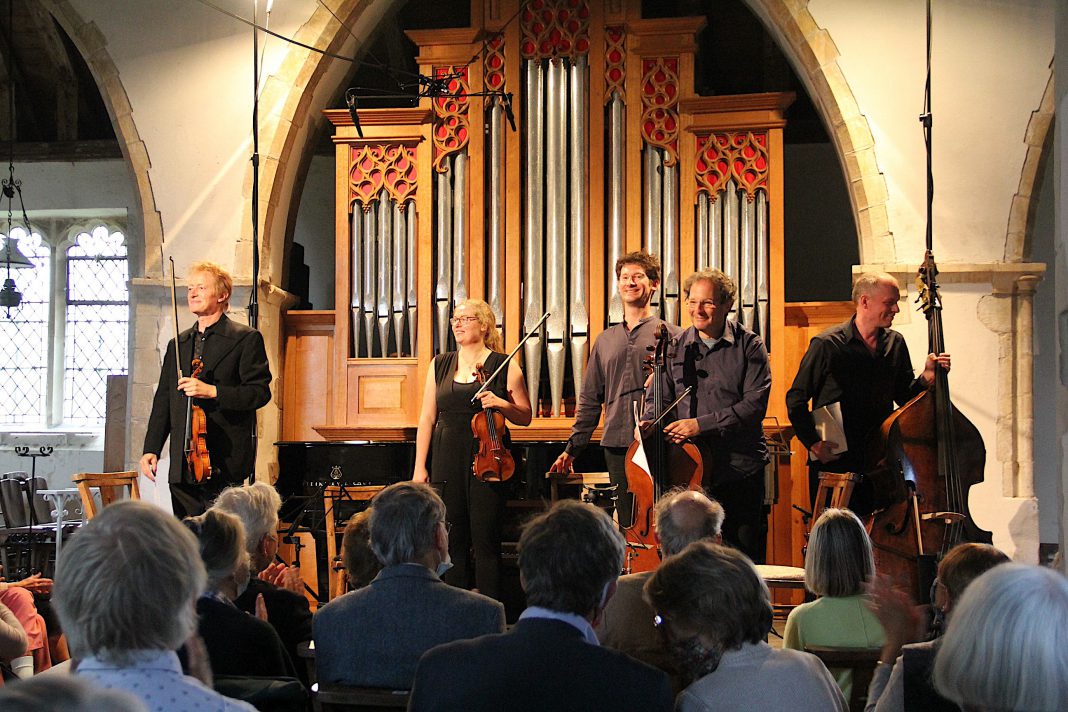Peasmarsh Chamber Music Festival returns to delight and astonish us.
Despite its non-appearance in 2020 for obvious reasons, nothing can long derail the Peasmarsh Chamber Music Festival: not social distancing, not indifferent weather, not controlled entrance times and regimented exiting, not an absent pianist due to Portuguese Covid-19 rules and not the temporary loss of a double bass player with gastric problems.
The first was organised away, the next three simply tolerated, the fifth remedied by the introduction of the brilliant Tim Horton and the last, on the Sunday morning, by the inclusion of top cellist Kate Gould to accompany her husband, top cellist and festival co-director Richard Lester in Rossini’s Duo for Cello and Double Bass. These two combined, in a way the good-humoured composer would surely have approved, in playing a new masterpiece for two cellos, to the joy of a delighted audience in Peasmarsh Church. The spirit of the festival is inextinguishable.
Three days before the two cellos sensation, the festival’s other co-director, violinist Anthony Marwood, in the event’s magnificent new third venue, St Thomas’ in Winchelsea, in an emotional introduction, began the Peasmarsh Chamber Music Festival 1 – 4 July 2021. Richard Lester’s magical interpretation of Bach’s third cello suite was followed by the suitably mournful Metamorphosen by Richard Strauss before the mood was lifted by a wonderfully blithe account of Mozart’s K.575 by the truly gifted young Barbican Quartet.
This began four days of glorious music making – and listening, of course – by a most inspiring group of musicians of a wide range of ages and experience but all united in remarkable skill and musicianship to enthral, astonish and emotionally touch their audience. A very broad range of music was offered of different styles and periods but all complementary.

It is invidious to single out individuals, though Anthony Marwood’s Mozart third violin concerto brought tears to the eyes of many in St Mary’s on Friday evening and Tom Horton’s pianism and seemingly effortless ensemble work, despite late inclusion spring to mind. Alec Frank-Gemmell brought immense joy and not a little admiration with his remarkable horn playing and Graham Mitchell recovered from a stomach upset to give a most powerful double bass performance in the festival’s concluding work.
The members of both the Barbican Quartet and the musicians who made up another ‘unofficial’ quartet deserve nothing but praise. By the time the festival closed on the evening of July 4 to the triumphant final chords of Dvorak’s String Quintet, there could have been no doubt in anyone’s mind that music had returned to us in its infinite variety and with all its power to intrigue, to enthral and to move the listener. Every single person who contributed in any way to the festival’s return deserves great praise; three resounding cheers for them all.
Image Credits: Walter van Dyk , Kenneth Bird .



